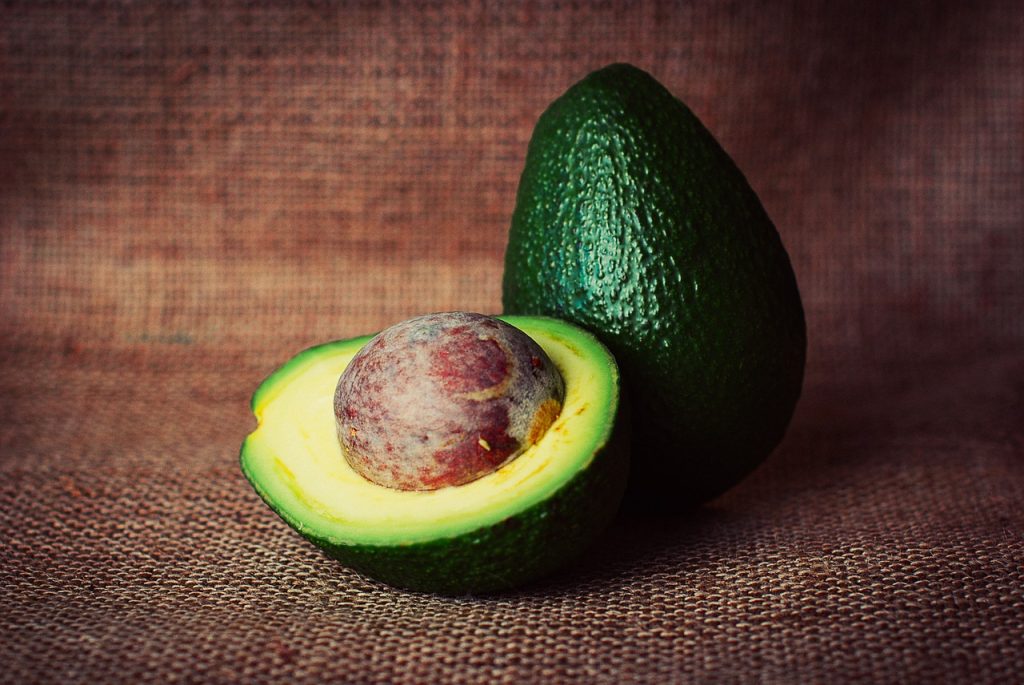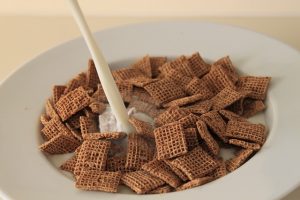 To quote myself from a past article: “For most people, undoubtedly, tracking calories is the best way to reach fitness and performance goals. It gives them the freedom to eat a variety of foods while staying on course. It also clearly demonstrates that food selection is not as important as food quantity when weight-loss is the prime objective (read). Doesn’t matter if you base your diet on strictly clean or “healthy” vegan foods, if you eat too much, the scale won’t budge.”
To quote myself from a past article: “For most people, undoubtedly, tracking calories is the best way to reach fitness and performance goals. It gives them the freedom to eat a variety of foods while staying on course. It also clearly demonstrates that food selection is not as important as food quantity when weight-loss is the prime objective (read). Doesn’t matter if you base your diet on strictly clean or “healthy” vegan foods, if you eat too much, the scale won’t budge.”
“But why can’t I just eat less and not worry about numbers, ratios or anything like that?”
I hear you. And I’ve addressed this very question here. But since I know you’re hungry for more (see what I did there?), I’ll show you how to lose weight without counting calories.
Nutritional Mathematics: When to Count Calories
If you want to reach higher physique goals (i.e. single digit body-fat, 6-pack abs etc.), counting calories is your best bet. If, on the other hand, you simply want to lose some weight, look and feel good, you do not have to concern yourself with numbers and ratios. But you will have to (radically) overhaul your diet.
The beauty of counting calories is that you can eat everything and I mean everything as long as your calorie and macronutrient goals are met. But it doesn’t work for everyone. I’ve seen many people fail to lose weight and reach their physique goals despite using this proven method.
It’s not because of metabolic sluggishness, “bad” calories or gluten intolerance, it’s because they simply don’t stick to their guns. They don’t meticulously track their intake, miscalculate and in some cases “forget” to count entire meals, rendering this strategy ineffective. Nutritional mathematics is a game that won’t be mastered overnight.
Don’t fool yourself. If counting calories isn’t for you, find another way.
The “eat-as-much-as-you-want” Diet

How many times did you come across a miracle diet claiming to give you unlimited access to certain foods while banishing your excess pounds into nothingness. You know, the cabbage soup diet, the potato diet, the flying piglet diet or whatever other bullshit people come up with next.
An all you can eat weight-loss miracle diet? Not going to happen.
Granted, you can eat as much broccoli as you could fit into your bathtub and still not gain weight, but that’s unlikely going to be a viable approach to losing weight. There are no magic diet foods. Eat less and you’ll lose weight (wow, I just solved the world’s obesity crisis).
Base your diet on whole foods. Foods that your great (great) grandparents had on their plates and you will lose weight.
Good food = natural appetite regulation
Eating minimally processed, low glycemic foods will regulate your appetite and calorie intake naturally. Sticking to these foods (see below), you won’t be inclined to overeat and you’ll lose weight without consciously trying to restrict your energy intake.

“If man made it, don’t eat it” – Jack LaLanne
Enough said.
Who am I to argue with the “The Godfather of Fitness”, but c’mon Jack… no ice cream? No cheesecake? But yeah, if you want to lose weight without counting calories these goodies are off limits.
You won’t be starving, though. You’ll actually feel fuller and more satisfied eating less than before. Pick foods from the Lean and Mean buffet and enjoy tasty, nutrient packed meals.
Lean and Mean Buffet:
- Eggs
- Dairy (cheese, yogurt)
- Meat, fish and seafood
- Nuts and seeds
- Fruit and vegetables
- Grains (1 serving/ day)
Stick to these foods and eat until satisfied. Limit the intake of grains to 1 serving a day and favor un- or minimally processed varieties such as steel-cut oatmeal over pasta and whole grain over white bread.
If you feel like weight-loss is stalling after eating this way for 4 weeks cut down on your portion sizes and limit your intake of high energy foods like nuts and high-fat cheeses.
5 servings of fruit and vegetables a day?
Go ahead and eat those veggies but know that fruit is hardly a health food. Most varieties (esp. conventionally grown) are very high in sugar and low in nutrients. Stick to berries, apples, avocados (yes, avocado is a fruit), citrus fruits and stay away from smoothies, juices and processed fruit. 2-3 servings a day max.
I strongly believe if you base your diet on the right foods, your appetite will regulate itself naturally after a brief adaptation phase. Let’s face it, you’re unlikely to overeat vegetables, eggs and fish.
Go ahead and try it. You might end up eating too much for the first 3 or 4 days, but after that you won’t want to eat more. Your hunger and appetite levels will have adapted by then and you’ll be satisfied eating less. Food choice is imperative to making this strategy work, however. Stick to the list of foods provided, and don’t fall for the heavily marketed diet and superfood scams.
Minimize Refined Carbohydrate Intake
No, carbs are not inherently more fattening than fats or proteins (a calorie= a calorie). They are not the cause of obesity. They are not the dietary evils low-carbers have you believe (CONTEXT!).
 However, out of all the macronutrients, carbohydrates are the least satiating and the most dispensable. If you don’t count calories, you must keep your carb intake in check.
However, out of all the macronutrients, carbohydrates are the least satiating and the most dispensable. If you don’t count calories, you must keep your carb intake in check.
Carbohydrate based meals increase appetite and will leave you feeling hungrier than protein and fat meals. You’ll reach for your next snack shortly after consuming the same amount of calories from a pasta dish as opposed to a meal of steak and veggies.
While the scientific consensus on food satiety is that carbohydrates are more satiating than fats, that is not the whole story (I’m being polite here). Carbs do have a pronounced and immediate impact on satiety due to the sheer volume of carb-heavy meals. But they promote a sensation of fullness that quickly subsides. The post-meal spike and subsequent drop in blood sugar seen with high-carb feedings drives people to snack and overeat.
There’s no need to eliminate them from your nutrition protocol. You need all 3 macronutrients in your diet. However, if weight-loss is your goal focus on protein and whole food fats over carbohydrates. Emphasizing nutrient dense, high satiety foods will take most carb sources out of the picture. Potatoes, oats, vegetables and fruits being the exceptions.
You Need a Routine
As far as weight-loss is concerned, the timing of your meals is irrelevant. That’s right, you could eat all your daily calories before hitting the sack and still not gain weight as long as you don’t overshoot your intake. But eating at regular meal times will introduce a routine into your day and that alone will greatly increase the likelihood of you staying on track.
Eat 3 square meals a day and eliminate snacks from your diet. Alternatively, you can eat 2 larger meals. A higher eating frequency is associated with a higher bodyweight (shocking, I know). Even if you don’t consciously count calories, your energy balance will determine whether you lose weight or not, and eating less often will keep you from blowing up your calorie intake.
How to lose weight without counting calories
- Eat whole or minimally processed foods
- Eat at fixed meal times and eliminate snacking
- Keep carbohydrate intake reasonable
Weight-loss is a very basic process. Provide less energy and/or increase energy expenditure and you will lose weight. It’s a simple equation, really.
Simple doesn’t mean easy, however. If it were easy, everybody would be in shape. But after reading this you have all the tools to get the job done. There’s only one thing missing now – You.
Have faith in yourself. Pull the trigger and don’t look back. Let’s be real here, if you decide to commit to this, who’s going to stop you? That’s right. Nothing and nobody in this world can stop you.
Don’t settle for anything less. Don’t settle for average. Commit to this lifestyle and embrace it. The rewards will manifest in ways you never thought possible.
Thank you for reading
Victor
Resources
Chambers, L./ McCrickerd, K./ Yeomans, M (2015). Optimizing Foods for Satiety. Trends in Foods Science and Technology. 41(2): 149-160
Hartmann-Boyce, J./ Johns, D.J./ Jebb, S.A./ Aveyard, P. (2014). Effect of behavioural techniques and delivery mode on effectiveness of weight management: systematic review, meta-analysis and meta-regression. Obes Rev. 15(7):598-609.
Hetherington, M.M. et al. (2013). Potential benefits of satiety to the consumer: scientific considerations. Nutrition Research Reviews, 26 (01), pp. 22–38
Strasser, B./ Spreitzer, A./ Haber, P. (2007). Fat loss depends on energy deficit only, independently of the method for weight loss. Ann Nutr Metab. 51(5):428-32.
Leave a Reply